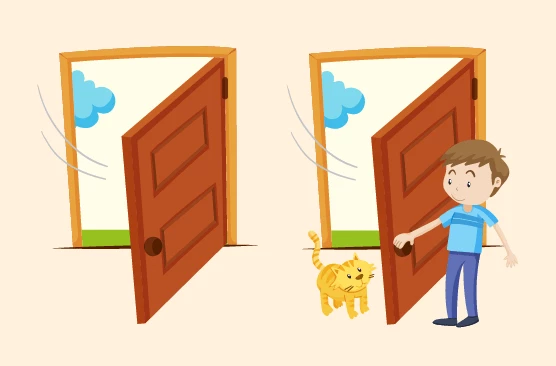Intransitive verb, transitive verb
Did you know that in English, there are two types of verbs: intransitive verbs and transitive verbs? If you are still confused about how to distinguish between the two types of verbs above, this article is for you. Let's join EnglishTopVN to learn and master the nature of transitive and intransitive verbs through specific examples and practice exercises.
1. What is a transitive verb?
- Transitive verb are verbs that need an object to form a meaningful sentence.
Grammatically, transitive verb obligatory must be followed by at least 1 object.
1.1. Simple transitive verb
Simple transitive verbs are verbs that only need one object following them.
- He wrote a letter.
→ A letter is the object of the verb wrote.
- She is saving money to buy a new house.
→ Money is the object of the verb saves; still a new house is the object of the verb buy.

She is saving money to buy a new house.
1.2. Dual transitive verbs
- Dual transitive verbs are verbs that require two objects:
-
Direct object (person or thing directly affected by the verb)
-
Indirect object (person or thing that receives a direct object from the subject)
For example:
-
He gave her a new dress.
→ "a new dress" is a direct object (directly affected by the verb "give"), while "her" is an indirect object (the person receiving the dress)
-
She wrote him a letter.
→ "a letter" is a direct object (directly affected by the verb "write"), while "him" is an indirect object (the person receiving the letter).

She wrote him a letter.
2. What is an intransitive verb?
Journalize are verbs that do not need to be followed by an object but still fully express the meaning of the sentence.
Grammatically, intransitive impossible followed by an object.
For example:
-
They are standing. (Surname using.)
-
He runs. (He jogging.)
-
The children are playing in the park.
→ in the park just a prepositional phrase of place, not an object.
-
She drives carefully.
→ carefully is an adverb that modifies a verb drive, not the object.

The children are playing in the park.
Note: Because intransitive verbs cannot be followed by an object, they cannot be used in the passive.
3. These verbs are both intransitive and transitive
- Some verbs are both intransitive and transitive, depending on how they are used in the sentence.
We can compare the following examples:
-
She is eating. → intransitive verb
-
She is eating a cake. → transitive verb
-
The door opened.→ intransitive verb
-
He opened the door. → transitive verb

The door opened. / He opened the door.
Some other examples:
-
Sales has increased two fold since October. → intransitive verb
-
They have increased the pricesince October. → transitive verb
-
His English will improve if he studies hard. → intransitive verb
-
He needs to improve his English if he wants to work in the USA. → transitive verb
== Practice ==
Intransitive verbs, transitive verbs - Test 1

